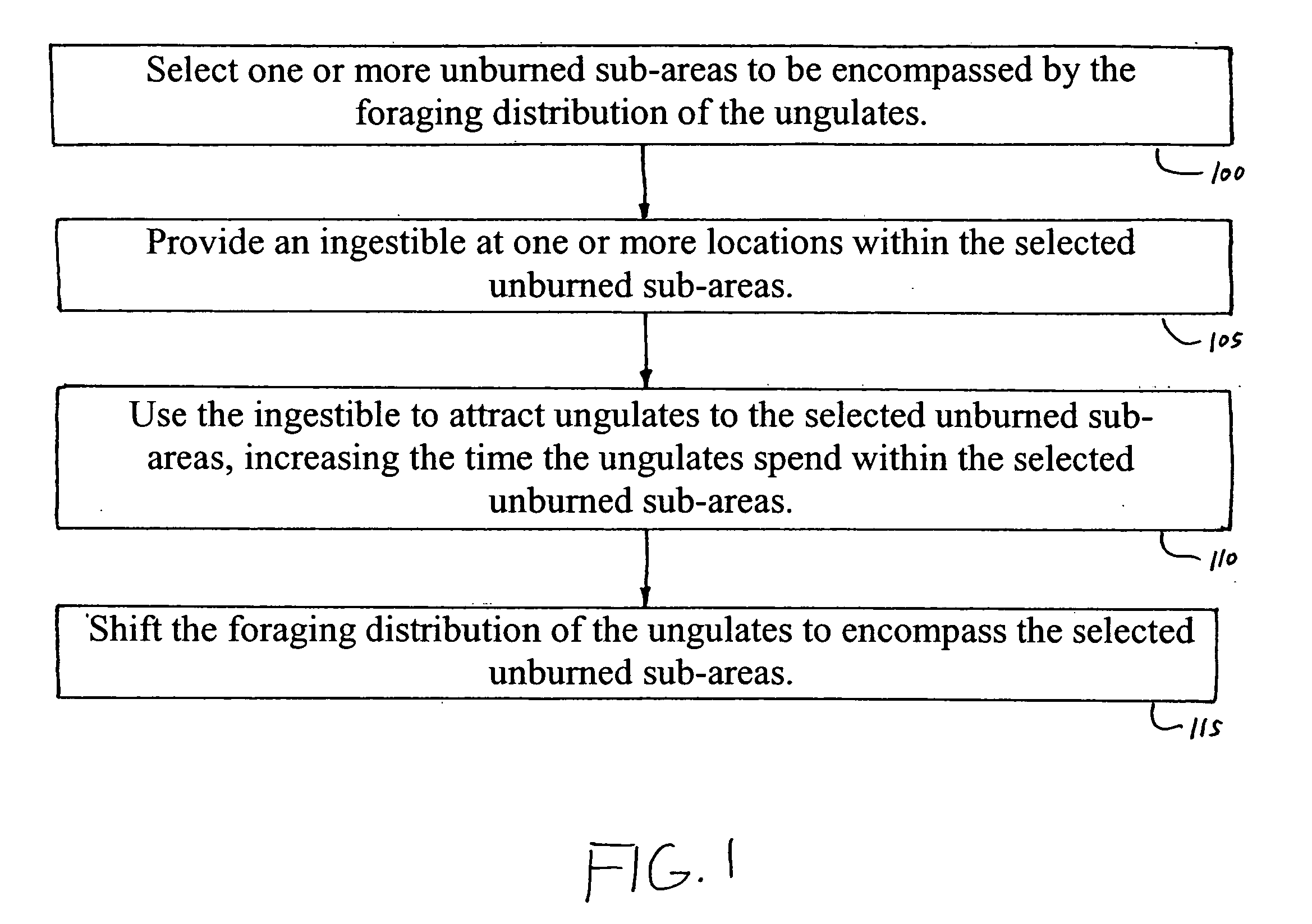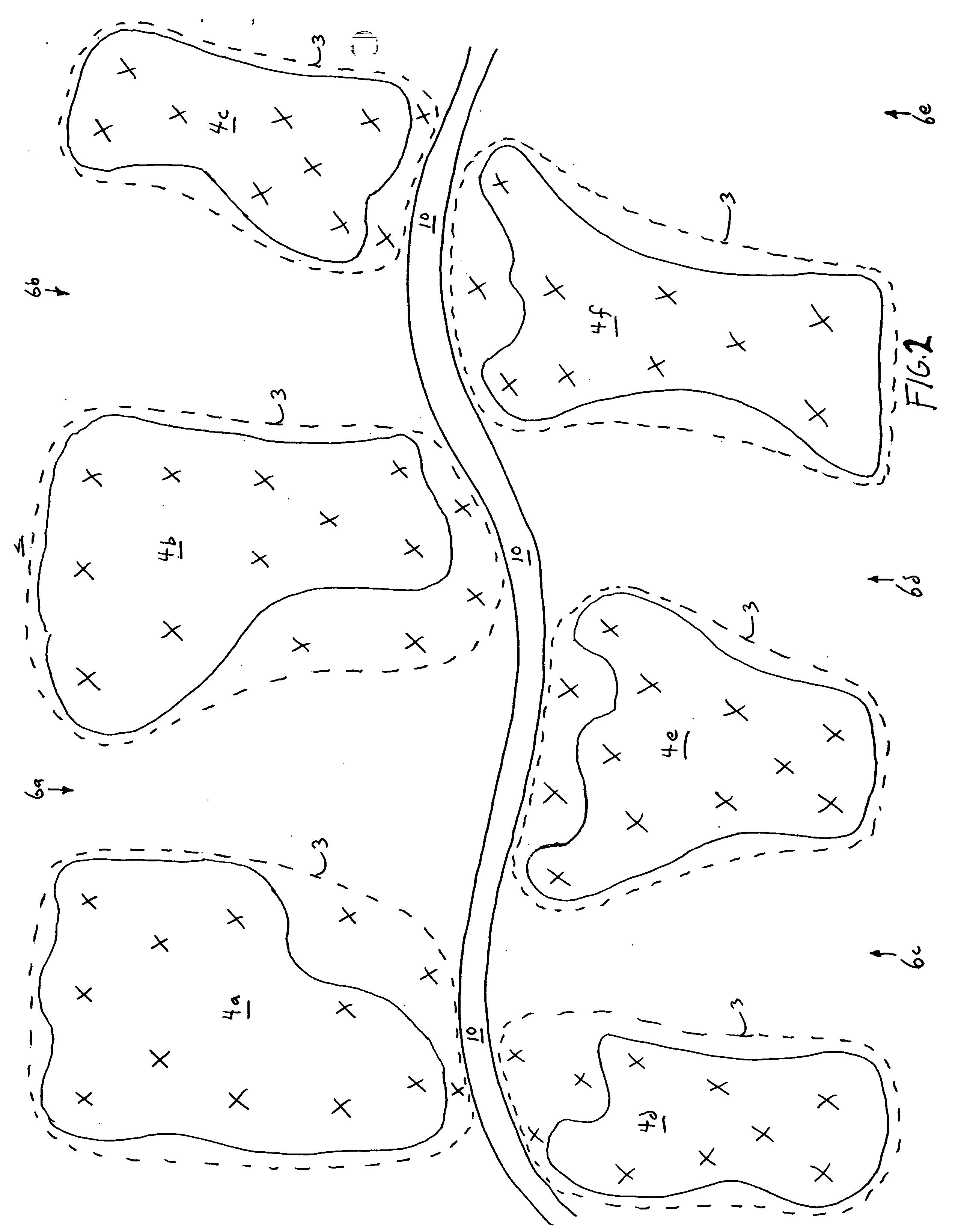Reducing ungulate pressure on post-burn areas in mosaic burns
- Summary
- Abstract
- Description
- Claims
- Application Information
AI Technical Summary
Benefits of technology
Problems solved by technology
Method used
Image
Examples
Embodiment Construction
[0017] This specification discloses a method of modifying the natural foraging distribution of ungulates in a mosaic burn area to reduce ungulate foraging pressure on the burned sub-areas within the mosaic burn area. As indicated in FIG. 1 and as will be explained in greater detail later in this specification, the method, in one embodiment, is as follows. An unburned sub-area within the mosaic burn area is selected to be encompassed by the foraging distribution of the ungulates (block 100). A supplement (e.g., an ingestible such as a highly-palatable, portable, self-limiting, animal feed supplement of the type described later in this specification) is provided at a location within the selected unburned sub-area (block 105). The supplement attracts ungulates to the selected unburned sub-area and increases the time the ungulates spend within the selected unburned sub-area (block 110). The foraging distribution of the ungulates shifts to encompass the selected unburned sub-area (block ...
PUM
 Login to View More
Login to View More Abstract
Description
Claims
Application Information
 Login to View More
Login to View More - R&D
- Intellectual Property
- Life Sciences
- Materials
- Tech Scout
- Unparalleled Data Quality
- Higher Quality Content
- 60% Fewer Hallucinations
Browse by: Latest US Patents, China's latest patents, Technical Efficacy Thesaurus, Application Domain, Technology Topic, Popular Technical Reports.
© 2025 PatSnap. All rights reserved.Legal|Privacy policy|Modern Slavery Act Transparency Statement|Sitemap|About US| Contact US: help@patsnap.com



